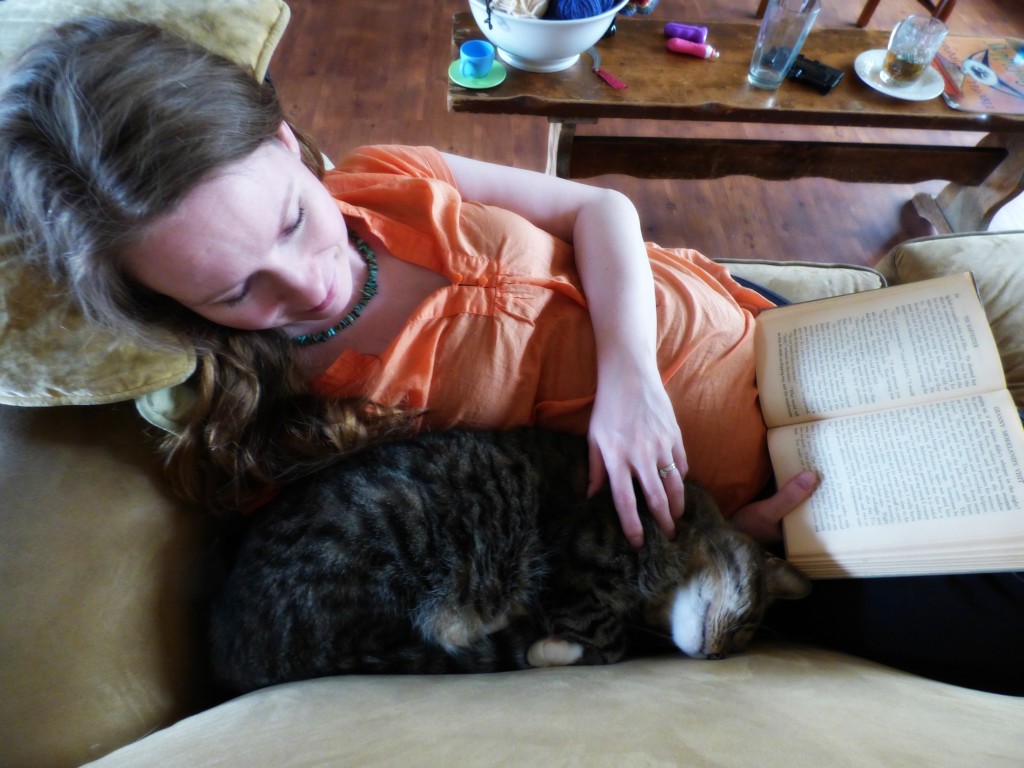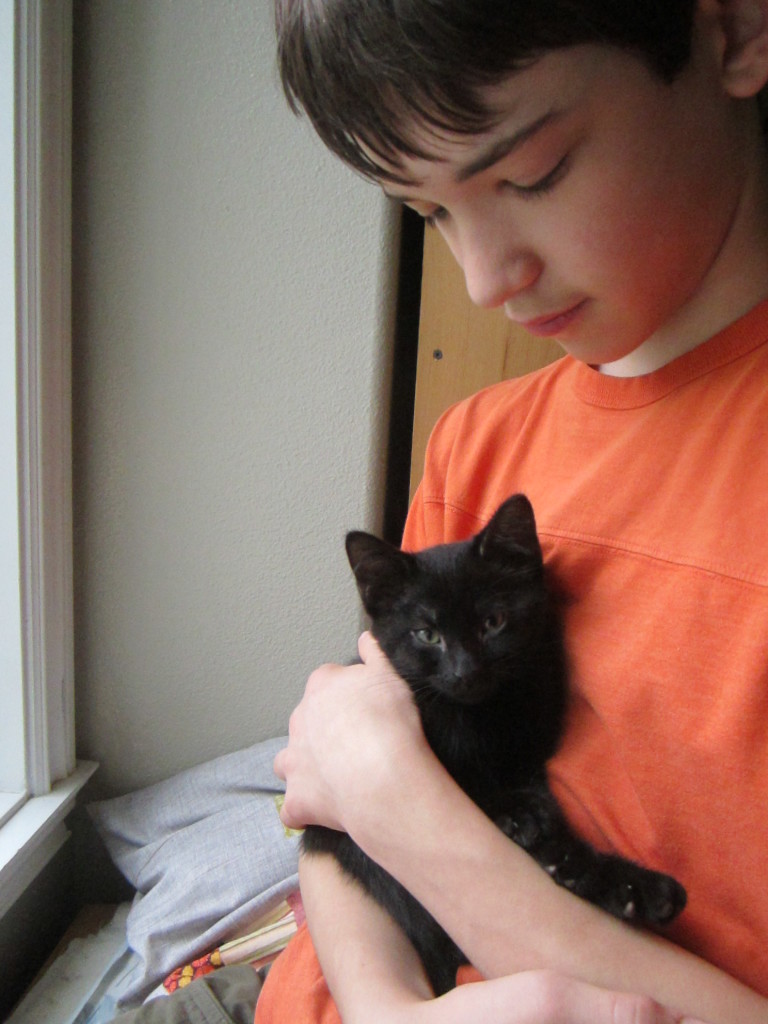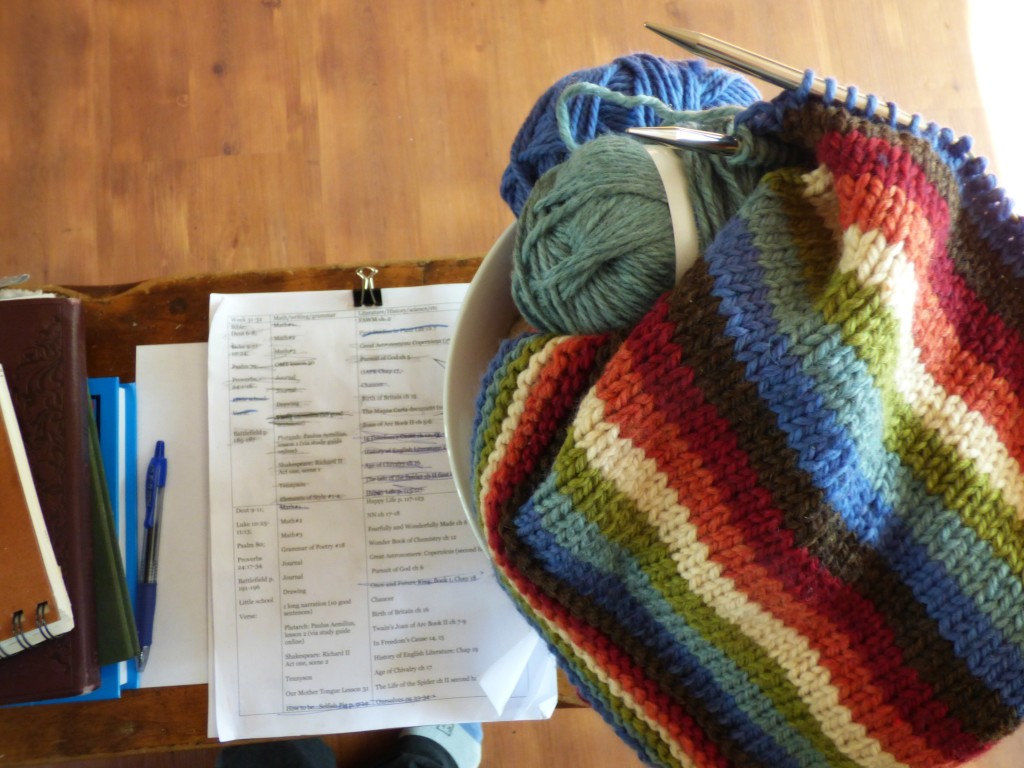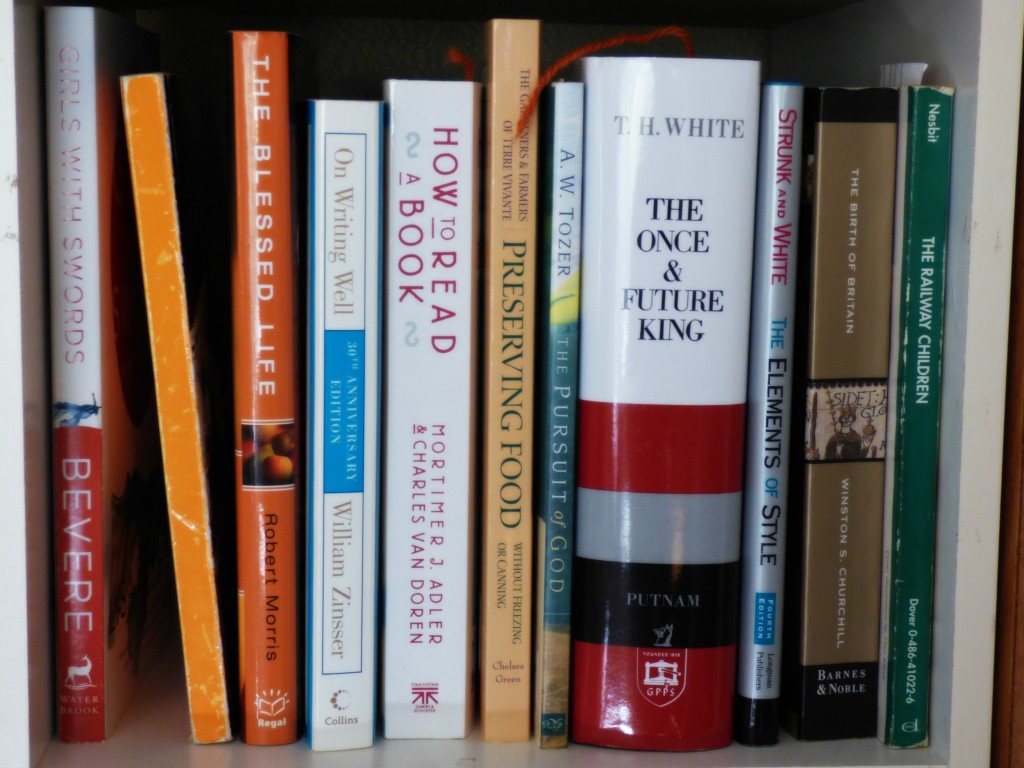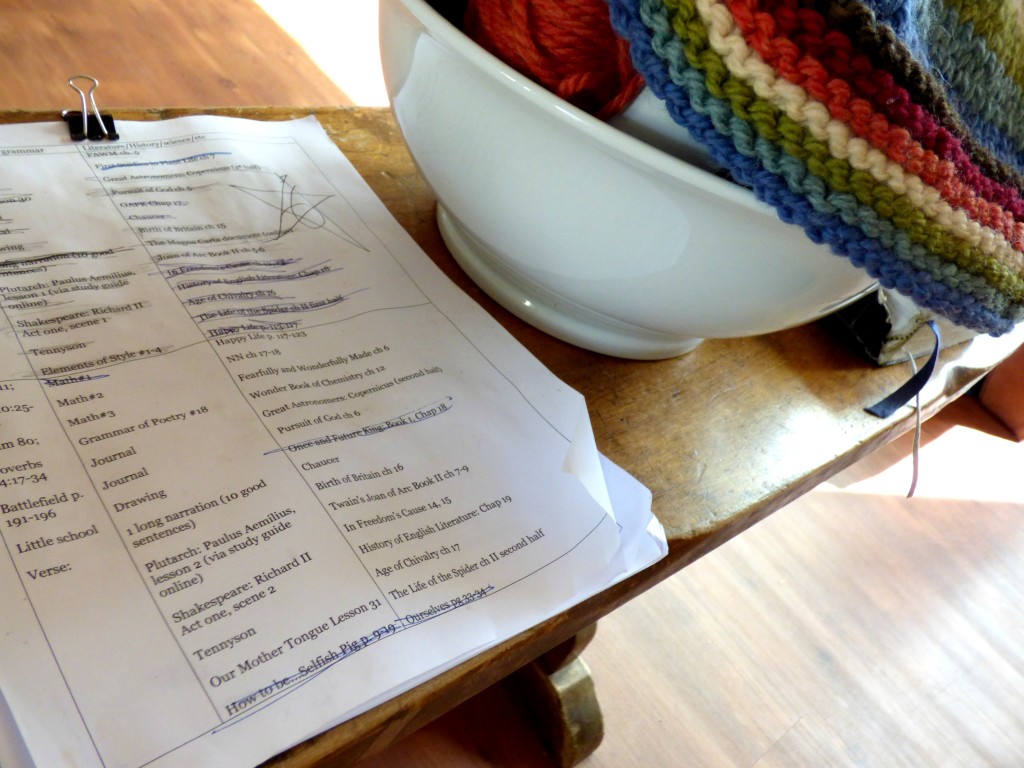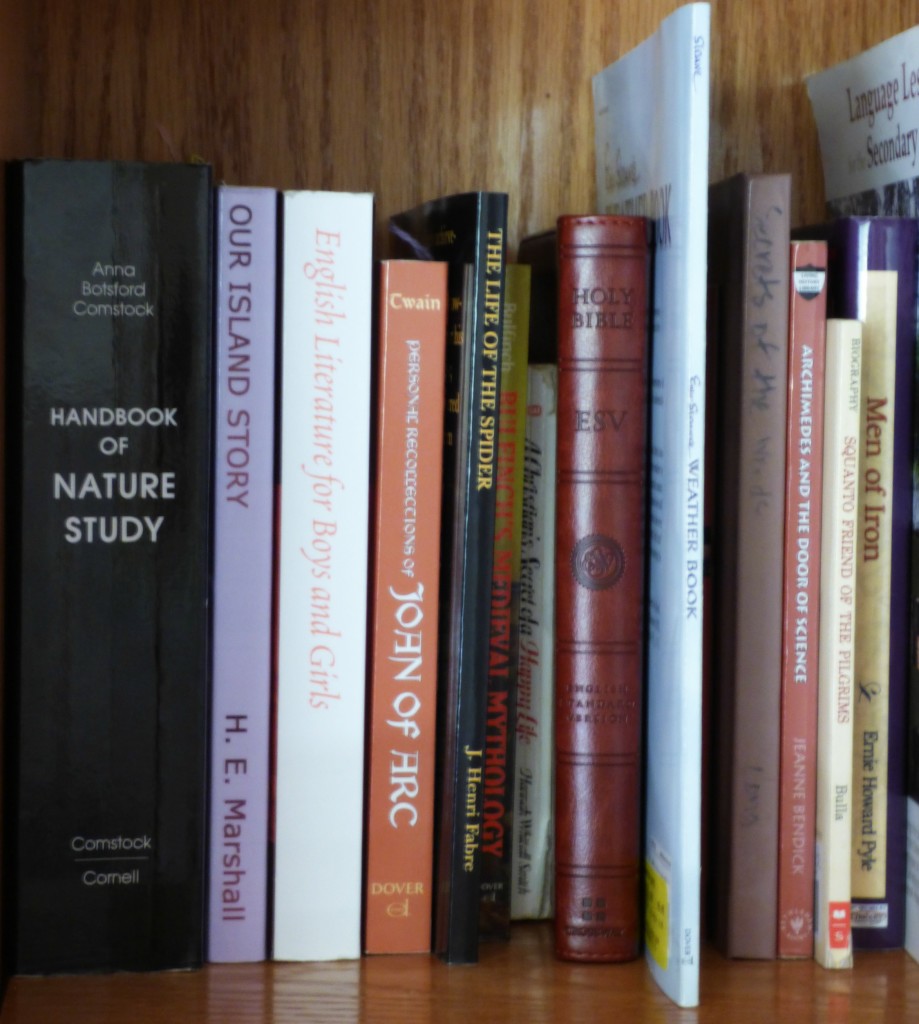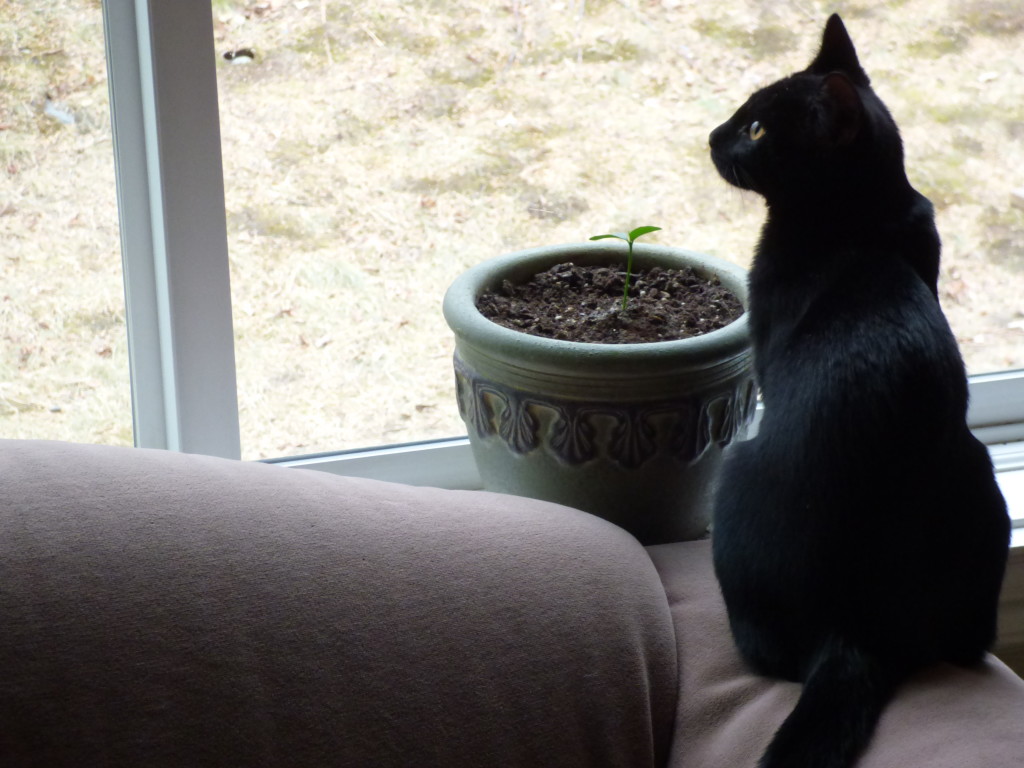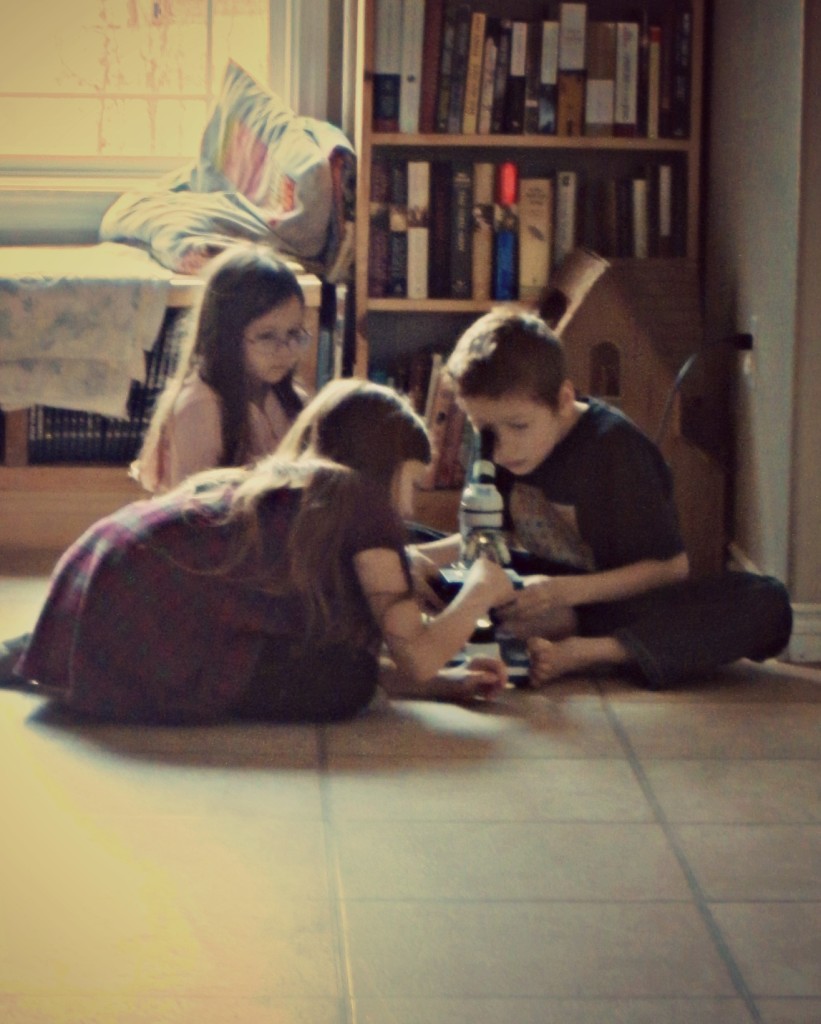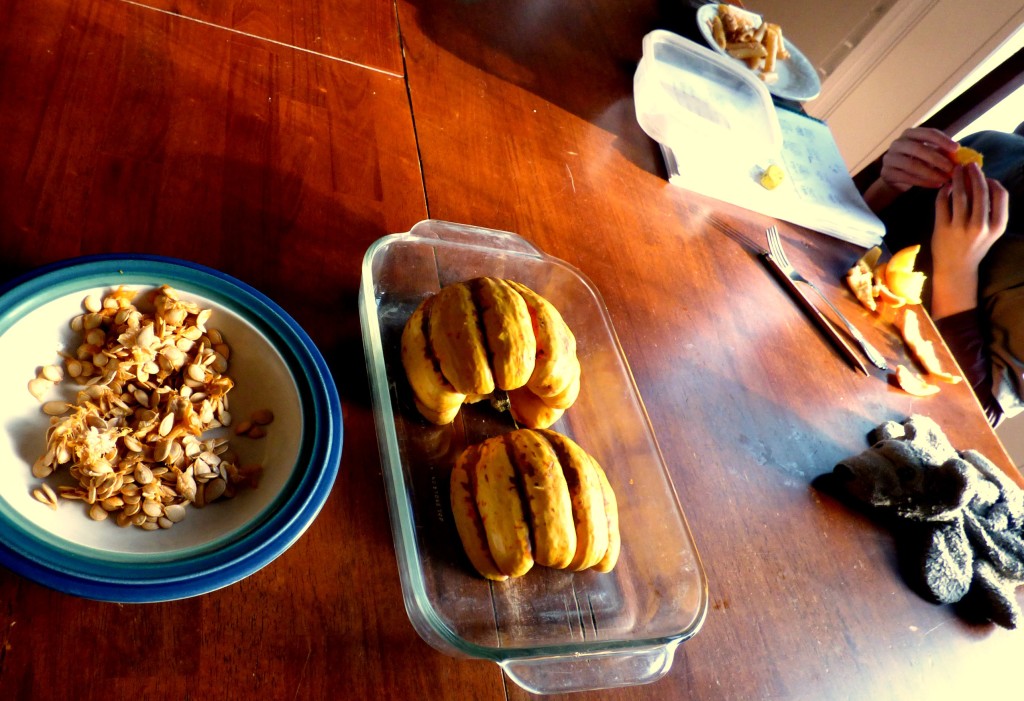This is weeks in the making. Like almost everything else lately, blog posts are slow going — two paragraphs at a time, about four nights a week – and from my station on the couch I can see dishes overcrowding the kitchen counter that I haven’t taken care of yet. There’s some folded laundry on the back of the other couch that still needs to be taken upstairs. A zillion other little things probably need to be done but I refuse to think too hard about them — we’ve reached the stage of Take It Easy And Don’t Get Too Ambitious, For Crying Out Loud.
Or if you prefer, the British version:
KEEP CALM
IT’S THE THIRD TRIMESTER
There’s this silly little fantasy I’ve had forever. Chalk it up to reading too many L.M. Montgomery books in adolescence, but I’ve always longed to have our beds covered in handmade quilts and afghans. Not store-bought, not mass-produced, not matchy-matchy trendy designs that will be out-of-date in less than five years (hello, chevron). Just handmade, homemade, cozy goodness.
It has yet to happen. The only beds in our family that have ever been covered in hand-stitched virtue are cribs and toddler beds, and since most of us don’t fit in those anymore, there’s still a lot of stitching to do. I’ve had three blankets in progress for about six years. I might just make it before our oldest graduates and moves out…but won’t hold my breath.
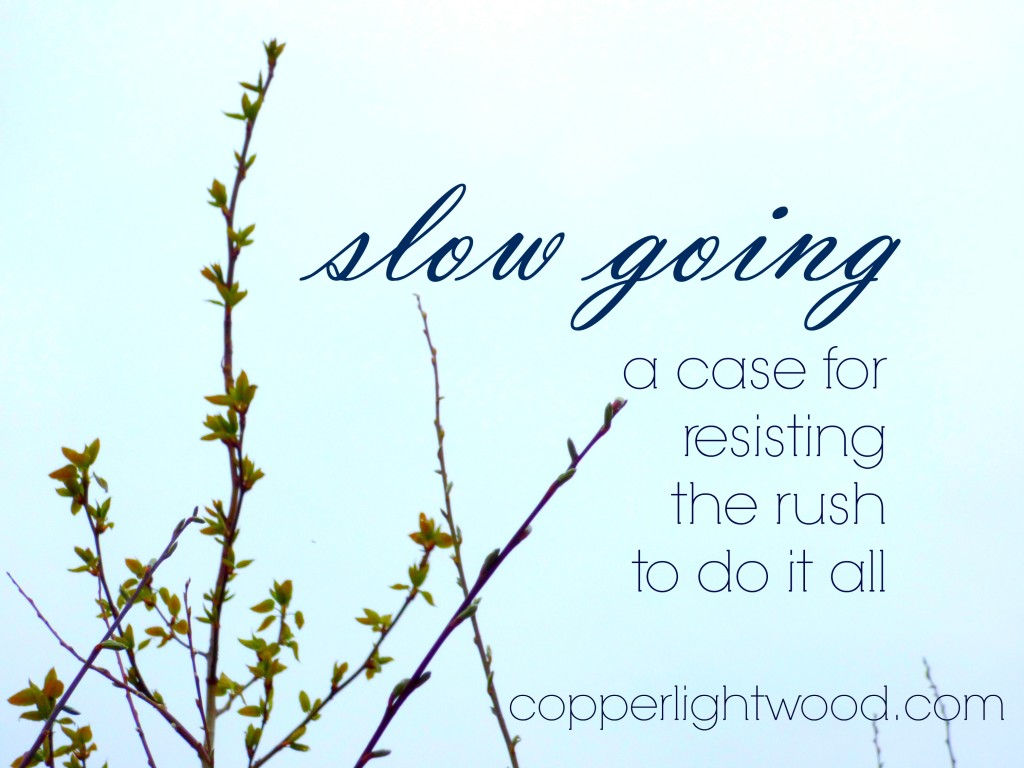
He’s starting high school. I have no idea how that happened.
We school year-round and our summer term just started: Twain, Tozer, Tennyson. Kim by Kipling. Life of Fred and lots of writing. Beatrix Potter and Mother Goose; language arts and language therapy. Nature study and sewing and robotics, oh my. This is all happening.
But it’s not happening at a frenetic, must-get-it-all-done, no-time-to-smell-the-roses pace. It’s gradual, not graded; slow, not sloppy. It is often outside, or under the blanket fort, or all over the kitchen table, or in the garden, as we go.
It’s no rush. One of the beauties of the year-round routine is that learning is a lifestyle, opposed to the whiplash of longer days packed with schoolwork for months at a time interspersed with weeks of (relatively) empty leisure that several of our kids (and honestly, myself) just have a really hard time with. We need the consistency of shorter school days with more free time. I don’t think we do more or less than other homeschoolers who have a more traditional schedule; we just spread it out a little more evenly – like jam on toast, versus jam on a waffle.
(oh…waffles…)
But either way the schedule runs, this lifetime of learning never feels done, and we’re tempted to feel constantly behind because there are always more subjects, more books, more things to try, than there is time for. Like making a postage stamp quilt by hand for a king-sized bed, it’s practically never ending and meant to be that way. If we were looking for a quick fix we’d be less interested in the process and more interested in just slapping two sheets together and buzzing them together by machine, all matchy-matchy…which is strangely similar to what happens in many places where bureaucracy trumps the joy of learning.
Learning kindles more learning, like rows of stitches built on the rows before – one day at a time, one page at a time, one stitch at a time.
A child . . . must have a living relationship with the present, its historic movement, its science, literature, art, social needs and aspirations. In fact, he must have a wide outlook, intimate relations all round; and force, virtue, must pass out of him, whether of hand, will, or sympathy, wherever he touches. This is no impossible programme.
– Charlotte Mason, School Education, p. 161-2
It doesn’t look the same for each kid. One of our daughters goes outside with the Alaska Wild Plants book to identify young growing things in her journal, but we have other kiddos who just want to play in the dirt and climb trees – no inspirational sketchbooks, no field guilds, and may the good Lord help you if you even think of mentioning the phrase “nature study” – but if given enough room, these same kids will surprise us with an accurate and detailed hand-drawn map of our yard and house.
I can’t take credit for those things. I’ve tried to assign projects like them before, and from the wailing and gnashing of teeth that ensued, you’d think I’d told the kids we were all going to have our molars extracted without anesthesia.
In the spirit of choosing our battles, I’ve learned (slowly) that they need room to come up with most of these projects and ideas on their own. The very same kid who made this such a painfully clear lesson recently spelled out all the differences between Mayans, Aztecs, and Incas — who have blurred fuzzily for me since elementary school — and I asked him how he knew so much. He said he read about them from a book that’s been on his brother’s bed – not an assigned book, not for school, just for perusing. No assignments, no narration, no pressure. No wailing and gnashing of teeth.
He’s the one entering high school with a year of early algebra credit already under his belt. And I am so proud of him, but we’re not learning for credits or bragging rights or degrees.
We’re learning because He made us to grow and seek Him out. We find Him in science, in literature, in relationships, in the slow and steady pursuit of stitching life together. It is the glory of God to conceal a matter; to search out a matter is the glory of kings.
And it takes lots of time. The dishes can wait.
